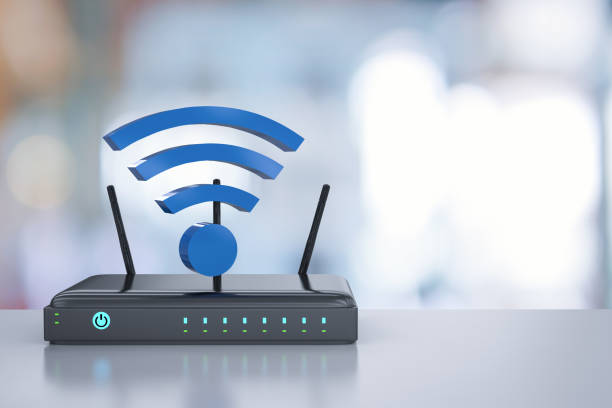How Does My Wireless Router Affect My Internet Performance?

Fri, Aug 15, 2025 11:15 AM
When you think about internet speed, you probably blame your service provider first whenever things slow down. But here’s the truth: your wireless router plays just as big a role in your internet performance as your provider. A router is like the “traffic controller” of your digital life, directing data between your devices and the internet. If it’s outdated or poorly set up, your connection suffers—no matter how fast your internet plan claims to be.
In this guide, we’ll break down how routers impact speed, stability, and overall performance. We’ll also cover upgrades, Wi-Fi technologies, and how to make smart choices for smoother browsing, streaming, and gaming.
What Does a Wireless Router Actually Do?
A wireless router connects all your devices—phones, laptops, smart TVs—to the internet without wires. It distributes the connection your provider sends through your modem and ensures data flows efficiently. Think of it as the “bridge” between your internet provider and your daily online activities.
Router Speed and Bandwidth: Why It Matters
Even if you’re paying for high-speed internet, your router can bottleneck performance. An older router may not handle gigabit speeds, which means you’ll never see the full potential of your plan.
Bandwidth Basics
Single-band routers: Use 2.4 GHz frequency only, which is slower and more crowded.
Dual-band routers: Support both 2.4 GHz and 5 GHz, providing faster connections.
Tri-band routers: Add another 5 GHz band, great for homes with many devices.
Signs Your Router Is Slowing You Down
Sometimes it’s not your provider—it’s your router. Here are some clear red flags:
Streaming constantly buffers
Wi-Fi dead zones in your home
Devices disconnect randomly
Slow speeds even with a premium plan
For more insight, check out the guide on signs you need to upgrade your internet.
How Wireless Standards Affect Speed
Wi-Fi technology evolves quickly, and routers must keep up.
Wi-Fi 4 (802.11n): Outdated, basic speeds.
Wi-Fi 5 (802.11ac): Better for HD streaming and gaming.
Wi-Fi 6 (802.11ax): The new standard—faster, more efficient, supports dozens of devices at once.
Curious about the newest upgrade? Here’s everything you need to know about Wi-Fi 6.
Router Placement and Wireless Isolation
Where you place your router makes a huge difference. Walls, microwaves, and even fish tanks can weaken Wi-Fi signals. For businesses or shared networks, wireless isolation ensures guest devices don’t interfere with sensitive data or slow down performance.
Extending Your Wi-Fi Range
If your Wi-Fi doesn’t reach every corner of your home, don’t worry. Range extenders and mesh systems can help eliminate dead zones. Check out the best Wi-Fi range extenders to boost your signal without upgrading your entire setup.
How Many Devices Are Too Many?
Routers have limits. If your home is filled with smart home devices, gaming consoles, and multiple streamers, an older router won’t handle the load. Wi-Fi 6 routers are designed to manage dozens of devices without slowing down.
Security and Stability
A good router doesn’t just affect speed—it also protects your data. Outdated routers may lack modern encryption, leaving your network vulnerable. Upgrading ensures safer connections for banking, shopping, and remote work.
When Should You Upgrade Your Router?
As a rule of thumb:
Replace routers every 3-5 years.
Upgrade if you recently increased your internet speed.
Consider a Wi-Fi 6 router if you work from home, game, or stream heavily.
Practical Tips to Boost Internet Performance Without Upgrading
Reboot your router weekly to clear memory.
Place your router in a central location.
Use wired Ethernet connections for gaming or video calls.
Limit background apps that hog bandwidth.
Future of Wireless Routers
With Wi-Fi 7 on the horizon, expect even lower latency, faster speeds, and smarter ways to handle massive device networks. Staying updated ensures your internet keeps up with future technologies.
Conclusion
Your router is more than a box with blinking lights—it’s the backbone of your home’s internet performance. Investing in the right equipment, knowing when to upgrade, and making small adjustments can transform your online experience. Whether you’re working remotely, streaming in 4K, or gaming competitively, the right router ensures you get the most out of your internet plan.
Featured Plan

Bundles starting from $39.99/mo.
With Xfinity, you can get an amazing internet speed up to 1000 Mbp, over 260+ of digital TV channels, unlimited talk time nationwide, business plan, and home security services. Xfinity Comcast is the largest cable provider in the US.
View More Deals! (833) 396-3209